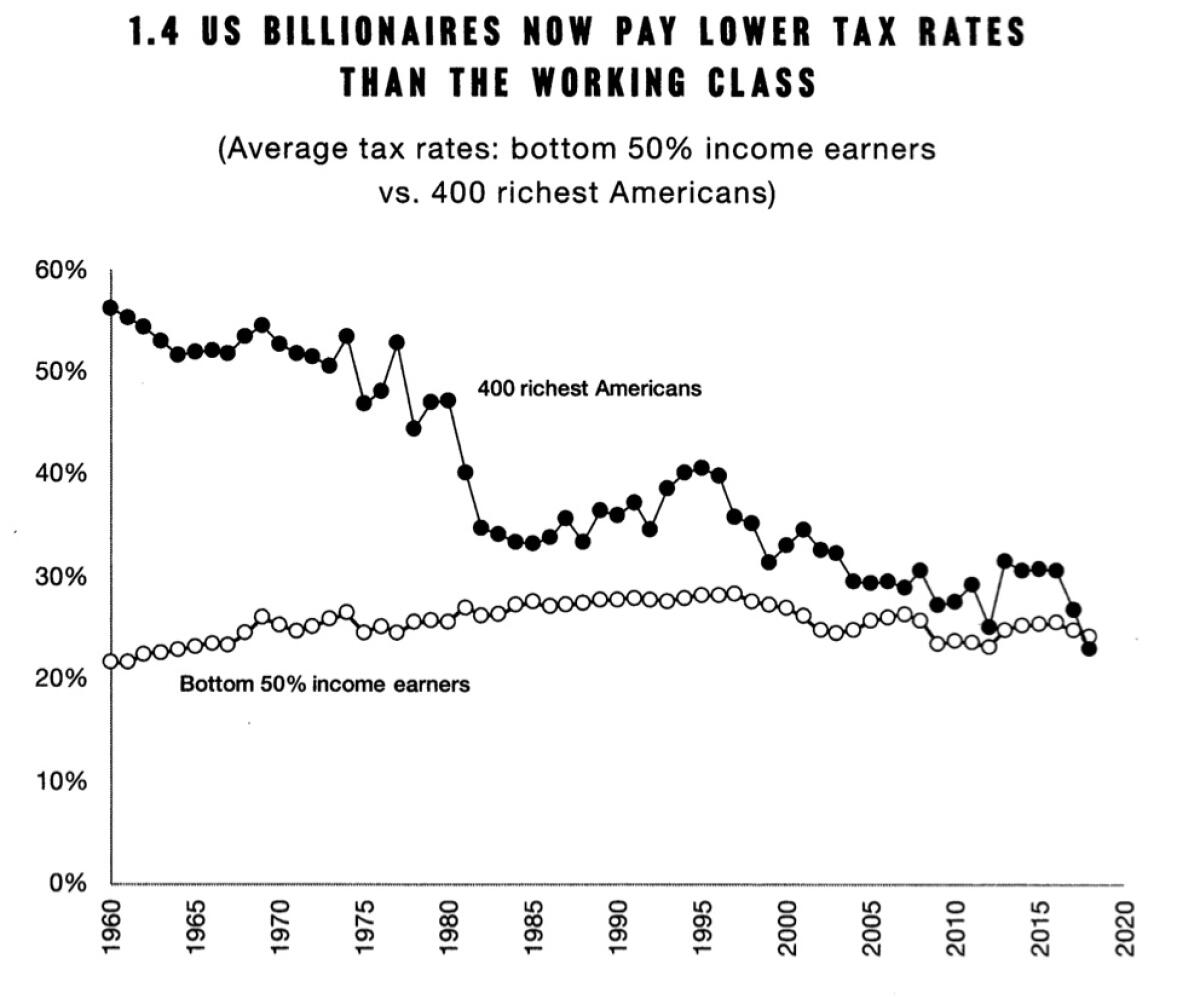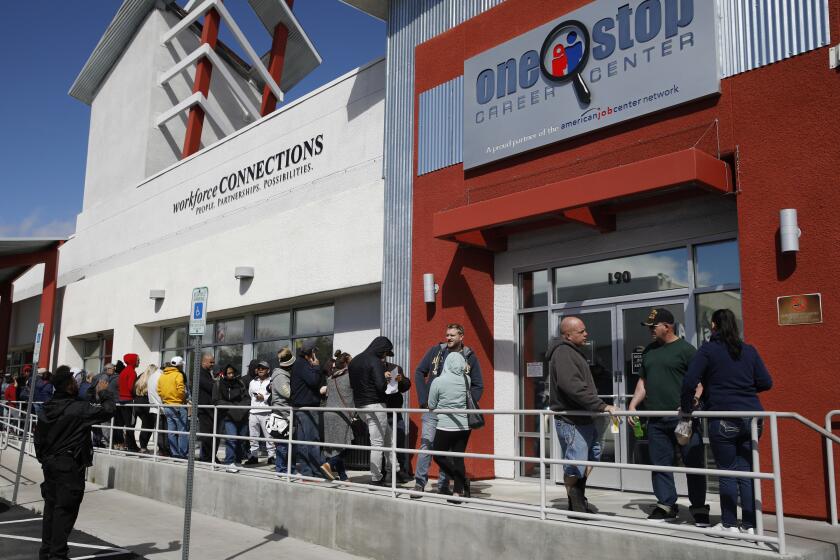Column: How often have tax cuts for the rich trickled down to the rest of us? Never

- Share via
We can probably stipulate that almost no one really believes that tax cuts for the rich are good for the economy.
The claim has become so closely identified with Republican ideologues and their patrons — that is, the rich themselves — that it no longer has much purchase in public debate.
It’s still GOP orthodoxy, however, so a new study published by the London School of Economics debunking it with hard data is useful.
The effect size of major tax cuts for the rich on real GDP per capita is close to zero and statistically insignificant.
— David Hope and Julian Limberg
Its authors, David Hope of the LSE and Julian Limberg of King’s College London, examined tax cuts enacted by 18 developed countries, including the United States, over the 50-year span from 1965 to 2015.
Their conclusion was that tax cuts for the rich succeeded in increasing the wealth of the top 1% and achieved absolutely nothing in terms of spurring growth or reducing unemployment.
“The effect size of major tax cuts for the rich on real GDP [gross domestic product] per capita is close to zero and statistically insignificant,” they write.
The Hope-Limberg paper is especially important in the context of the COVID-19 pandemic. While the pandemic has damaged the financial health of middle- and working-class American families — and things would be much worse if not for the relief packages passed by Congress — it has affected the top 1% not at all.
Indeed, as determined by Americans for Tax Fairness, the wealth of the nation’s billionaires has grown by more than one-third during the pandemic.
That points to one way of funding further relief, including the $1.9 trillion in assistance proposed by President Biden: Raise taxes on the wealthy. Indeed, Hope and Limberg proposed exactly that in mid-December.
“Given the damage the pandemic has done to economies,” they wrote, “the notion of getting the most affluent to help foot the bill is one that has many supporters .... Higher taxes on the rich could help to fund the substantial and potentially long-lasting expansion of government spending and social protection seen during the pandemic. They could also help address health and economic inequalities, which have only been exacerbated by COVID-19 and its economic fallout.”
It’s time to think about how to get workers raises over the long term.
The authors’ survey doesn’t encompass the massive U.S. tax cut enacted in December 2017 by the Republican-controlled Congress and signed by then-President Trump. But their findings conform with other research that does cover the 2017 cut, such as that of UC Berkeley economists Emmanuel Saez and Gabriel Zucman.
As they pointed out in their 2019 book “The Triumph of Injustice,” the 2017 cut finally brought the U.S. to the point where the 400 highest earners in the U.S. paid lower tax rates than the working class. “This looks like the tax system of a plutocracy,” they wrote.

Hope and Limberg, like Saez and Zucman, observe that cutting taxes for the rich not only increases economic inequality, but delivers ever more political power into the hands of the affluent while increasing their incentive to lobby for even more tax breaks. (Tax cuts enable them to keep more of their income gains.)
“There is a large political science literature on the power of rich voters and organized business interests to shape public policies in their favor,” Hope and Limberg write. “Lower taxes on the rich encourage high earners to bargain more forcefully to increase their own compensation, at the direct expense of those lower down the income distribution.”
Within their sample countries, they found, the economic effects of tax cuts were consistent. They tended to increase the GDP share of the top 1% by 0.8 percentage points within five years of the cuts.
The lack of any discernible impact on economic growth or unemployment, moreover, debunks “supply-side theories that suggest lower taxes on the rich will induce labor supply responses from high-income individuals (more hours of work, more effort etc.) that boost economic activity.”
This is the essence of the trickle-down theory and the lionization of rich people as “job creators.” At best, Hope and Limberg write, statistics show “very slight indications of a flash in the pan effect ... on unemployment,” but those indications are “neither statistically significant nor robust.”
In fact, they write, their findings match those of other research indicating that “income tax holidays and windfall gains do not lead individuals to significantly alter the amount they work.” Rather, “our analysis finds strong evidence that cutting taxes on the rich increases income inequality but has no effect on growth or unemployment.”
The rising tide of economic inequality in the U.S. spurred Sen. Elizabeth Warren (D-Mass.) to call for a wealth tax during her campaign for the Democratic presidential nomination last year, in essence taking back some of the handouts the rich received from Republicans under Trump. The evidence is clear that gifting the rich with more money does no good for the economy or workers.
Making them pay their fair share of the cost of living in a society, however, could do a lot of good.
More to Read
Inside the business of entertainment
The Wide Shot brings you news, analysis and insights on everything from streaming wars to production — and what it all means for the future.
You may occasionally receive promotional content from the Los Angeles Times.











